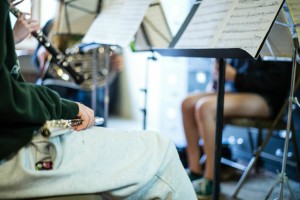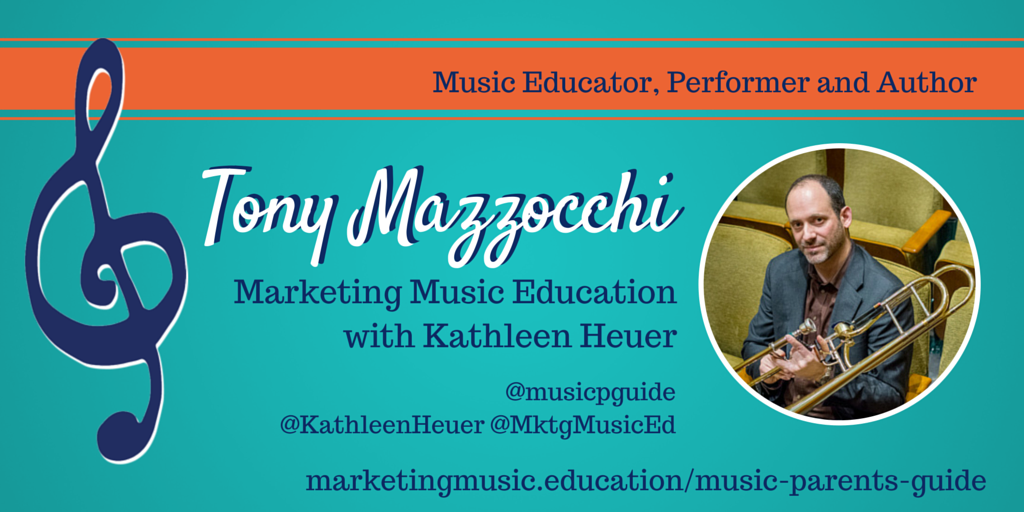 In the next few weeks, schools all across our nation will have assemblies for their young students in order to introduce band and orchestra instruments available for them to study. Music shops will be coordinating visits, demos, and instrument “petting zoos”; teachers are writing letters home in anticipation of their new young ensembles that need to hit the ground running right after summer. Hundreds of thousands of parents are about to be introduced to a world of instrumental music education that they may know nothing about.
In the next few weeks, schools all across our nation will have assemblies for their young students in order to introduce band and orchestra instruments available for them to study. Music shops will be coordinating visits, demos, and instrument “petting zoos”; teachers are writing letters home in anticipation of their new young ensembles that need to hit the ground running right after summer. Hundreds of thousands of parents are about to be introduced to a world of instrumental music education that they may know nothing about.
Meanwhile, music vendors will be receiving thousands of instruments back from families of students who have chosen not play any longer. The children in these families may be frustrated, bored or even worse: disenchanted with music. It’s an interesting dichotomy to these students’ younger counterparts, who can’t wait to open their instrument case for the first time soon.
You see, at this time every year there is an opportunity for this nation to experience the renaissance that music education so desperately needs. There exists an opportunity for an entire generation of music lover, musician, educator, patron of the arts, and music education advocate to be born — this includes students and their parents!
Imagine what would happen if almost every student didn’t quit and instead continued their musical instrument study in school next year:
- Most music programs would almost triple in size.
- More parents would give a voice to, and advocate for, their music programs.
- Programs would less likely be cut due to the vast number of students involved.
- In a few short years, middle and high school programs would flourish due to lack of attrition.
- Administrators would be able to collect valuable school data (including test scores) that would show the true effect of music on academics, since all students would be involved — not just a select cross-section.
Sound exciting? Every year presents a new opportunity for this to occur. It’s as if a “reset button” is pressed, and the hope of educating all students and their parents with music as the core of their school life starts over again.
In an ideal world of education (which, as described above, is only an inch away), here are five magical things that would happen if every student studied an instrument in school:
- All children would learn how to set and work toward their own goals. Learning these skills through subjects such as math and English are slightly possible, of course. But learning these skills through the arts is a given since it is more fun and engaging to create music through hands-on experiences. Learning an instrument encourages children to explore; if they keep their eyes and ears open, they will discover many things about the world that will benefit them for the rest of their lives.
- All children would experience a “growth mindset”. Although we all love seeing data that shows students who are involved in music do better in school, the data is not complete when there are so many students not involved in the program for reasons often beyond their control. With proper instruction, children cope far better to challenges and setbacks in learning an instrument than they do from failing a test. Schools would be wise to harness the power of music to change students’ mindsets and increase their chances of success beyond school walls.
- All children would experience success. Perhaps this sounds too broad, but too many school administrators do not understand how the arts benefit all other intellectual pursuits. If they did, the arts would not be first on the chopping block when school budgets face a rough economy or test scores need to improve. Whether a child becomes more motivated, imaginative, creative (non-testable traits), or their standardized test scores improve doesn’t matter so much. What is important is that there’s much more to instrumental music instruction than making a student more “well-rounded”. Overall, scholarly academic improvement is a byproduct of music instruction, and each student will receive the benefits of this in different ways — but they will receive the benefit.
- All students would learn focus and self-control the way it was meant to be taught. I have observed thousands of focused, self-controlled students in school music programs over the years — students who other teachers were fed up with or administrators only knew as “troublesome”. That’s because lining up children in rows with desks and telling them to sit still while they prepare for tests doesn’t ever work. Focus through musical instrument instruction leads to working memory — a crucial ability for test taking –which then leads to engagement and a successful school (and life) experience.
- Parents would experience new and exciting things. Learning music improves the lives of children and everyone around them. Children will always remember everyday small moments when they grow up, and new traditions of music making and music learning are shared moments that families can treasure forever. The more parents know about the benefits of music education and small ways to help their child learn an instrument, the faster we will see schools change in profound ways.
The “reset button” is about to be hit. Will this be the year that music education flourishes in our school system? Think about the schools where you live — what would happen if every student was involved in learning an instrument as a core part of their school curriculum?








Great write-up, Tony. A deserved topic to promote and great points on the benefits of learning music!
Awesome post! I know from my experience that my level on concentrated greatly increased with regular music practice. This, along with the self-control and habit building required to learn an instrument, was integral in getting through college. Thanks again!